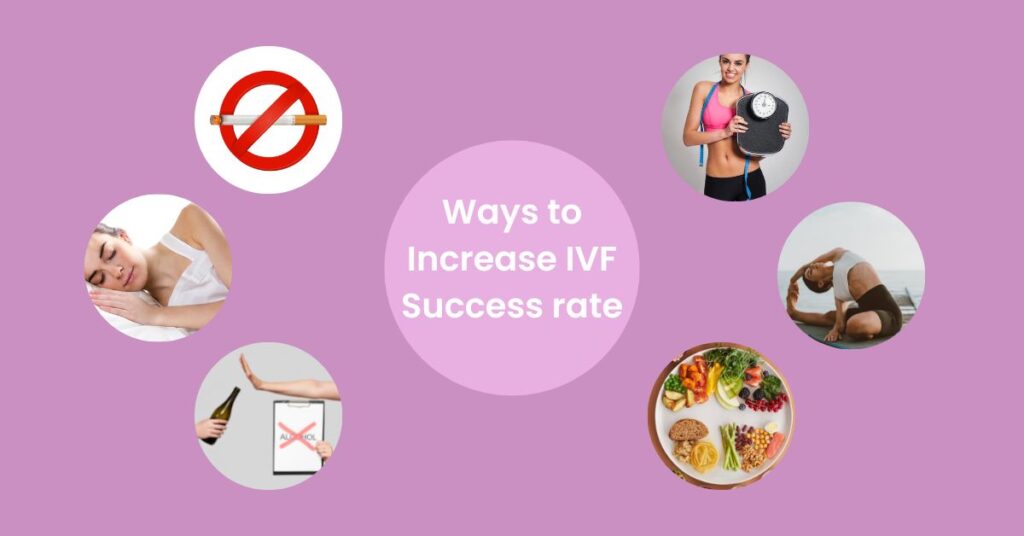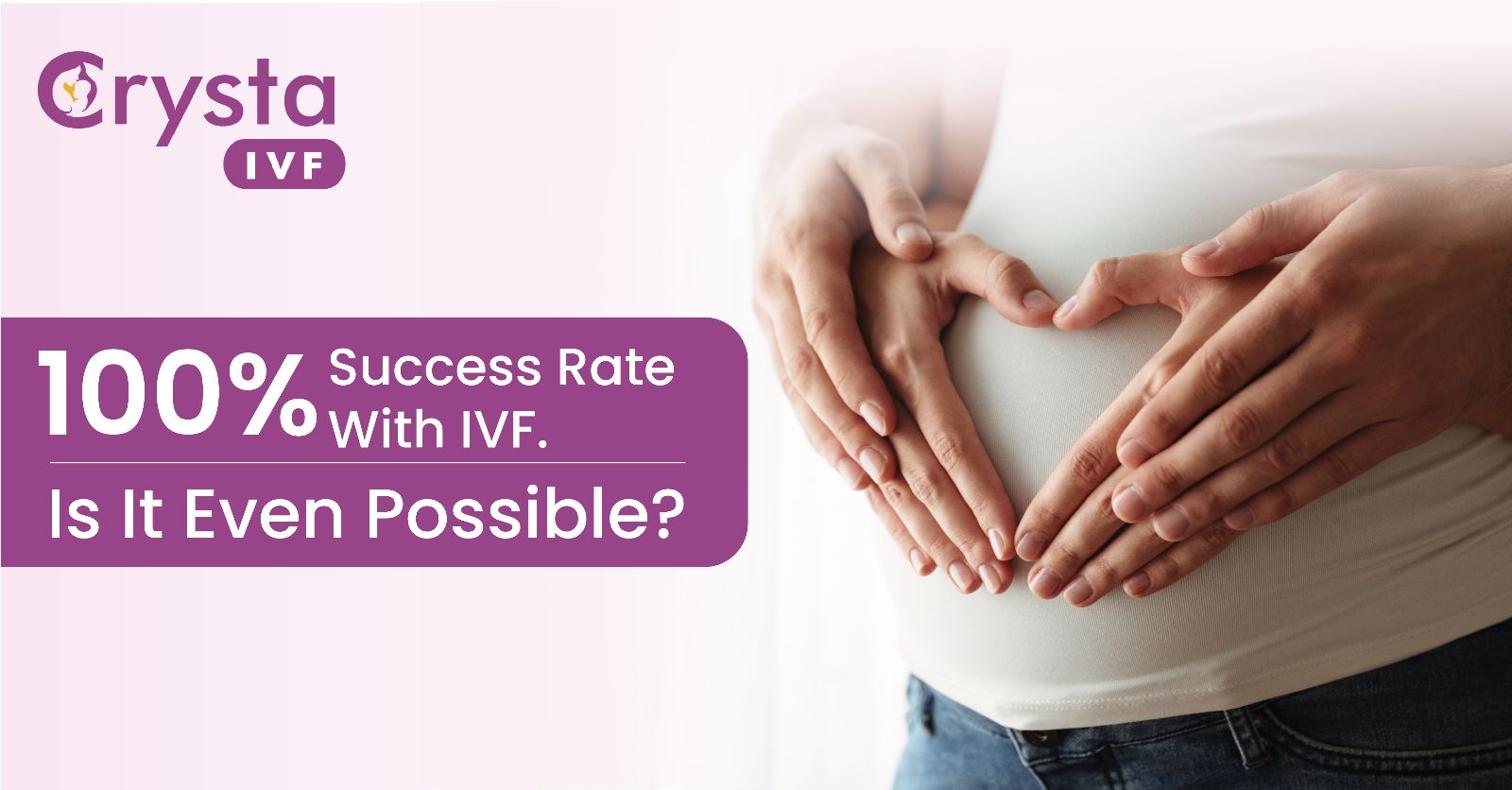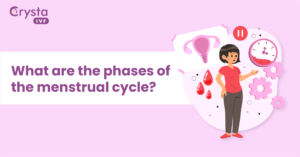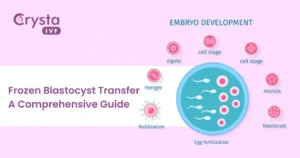In-vitro fertilization (IVF) is a fertilization process where a female egg is combined with male sperm outside the body, in vitro. The first successful birth using IVF techniques was in 1978. Since then, IVF treatment has allowed couples unable to conceive naturally to have children.
According to the report, it is estimated that almost 1 in 6 married couples suffers from infertility. Infertility is when a couple cannot conceive a child for over a year due to certain health conditions in females, males, or both. Such couples might require medical intervention such as assisted reproduction in order to get pregnant.
In vitro fertilization (IVF) is also one such type of advanced assisted reproduction. It is a process of fertilization where an egg is combined with sperm outside the body, in contrast to natural in vivo fertile processes.
The word “in vitro” is Latin for “in glass,” referring to the test tube in which early IVF experiments were conducted. IVF procedures can be used for both fertility preservation and assisted reproduction.
With fertility preservation, couples facing cancer treatment or other reproductive risks can have their eggs or sperm harvested and frozen before starting treatment, which may render them infertile.
How does IVF work?
IVF can be a confusing and anxiety-inducing process for many couples struggling with infertility. But in fact, the process is quite simple, involving –
- Consultation with a fertility specialist and getting fertility health evaluated
- Planning IVF treatment for your specific health condition and needs
- Stimulation of ovaries using fertility medication that, in turn, triggers the reproductive hormones
- Retrieving eggs on maturity using a needle in a small surgical procedure
- Collecting the male partner’s sperm
- Fertilization of egg & sperm outside of a body in a laboratory condition
- Transferring resulting embryo(s) back into the uterus for implantation or otherwise freezing it for future trials
- Scheduling pregnancy test 2-3 weeks after the embryo transfer
- A higher level of hCG in blood marks the beginning of pregnancy
What is the success rate of IVF?
Assisted Reproductive Technology like IVF has emerged as a ray of hope for many couples. Data shows that millions of healthy babies have been born with the help of IVF since its initiation.
While every person is different, the number of IVF cycles required before you can conceive also differs. Many couples conceive with the first attempt, while others may require 2-3 IVF cycles. And some may even go further.
However, there’s no denying that IVF offers a higher success rate than any other fertility treatment, but the success rate isn’t universal and depends on several factors.
Factors Affecting IVF Success Rate
- Type of infertility: Some fertility problems have a better success rate than others. For example, tubal blockages might have better chances of success with IVF than chronic health conditions like endometriosis or (Polycystic ovary syndrome) PCOS.
- Age of female partner: A woman’s age has a crucial role to play in IVF success. Generally, women younger than 35 experience more successful IVF treatment on the first attempt, and it is because the number of eggs in ovaries and their quality decline with age.
- Egg & sperm quality: As the IVF process involves the manipulation of egg & sperm, if either quality isn’t good enough, then this may lower the chances of success.
- Poor Lifestyle choices: There are an innumerable number of lifestyle choices available to men and women that can affect their fertility and their IVF success rate. Heavy alcohol consumption, recreational drug use, obesity, or smoking are some factors affecting a woman’s ability to conceive and men’s sperm count and overall reproductive health.
- Previous Pregnancy or Recurrent Miscarriage: A history of recurrent miscarriage can make IVF treatment difficult and complex. The chances of successful IVF might also be low for such patients.
Improving Your Chances of Successful IVF Treatment
Often couples undergoing IVF are worried about their decision and uncertainties. Therefore, preparing your body and getting proper guidance is better to make your IVF journey successful.
Doing this will improve your fertility and lead to a healthier pregnancy and baby. Here are some of the ways that will help you to improve your chances of IVF success –

- Healthy nutritional diet
- Maintain a healthy body weight
- De-stress yourself
- Adopt a healthy lifestyle
- Exercise daily
- Partner with renowned fertility experts
- Optimize sperm & egg quality
- Consider Supplements
- Get enough sleep
- Avoid alcohol
- Quit smoking
- Avoid excessive exposure to heat and radiation
Words From Crysta IVF
Deciding to have a baby through IVF is a choice that comes with a lot of considerations. Many factors go into this decision, and often it isn’t an easy one. Therefore, knowing every bit of IVF before starting down this road is necessary.
Fertility experts at Crysta IVF have decades of experience performing complex infertility treatments. We offer a variety of ART procedures and personalized counseling to ensure that we tailor the treatment to your specific needs and conditions.
Our individualized approach throughout the treatment has a high success rate in helping our patients conceive. Contact us today to learn more about how we can help you create the family you’ve always wanted.




